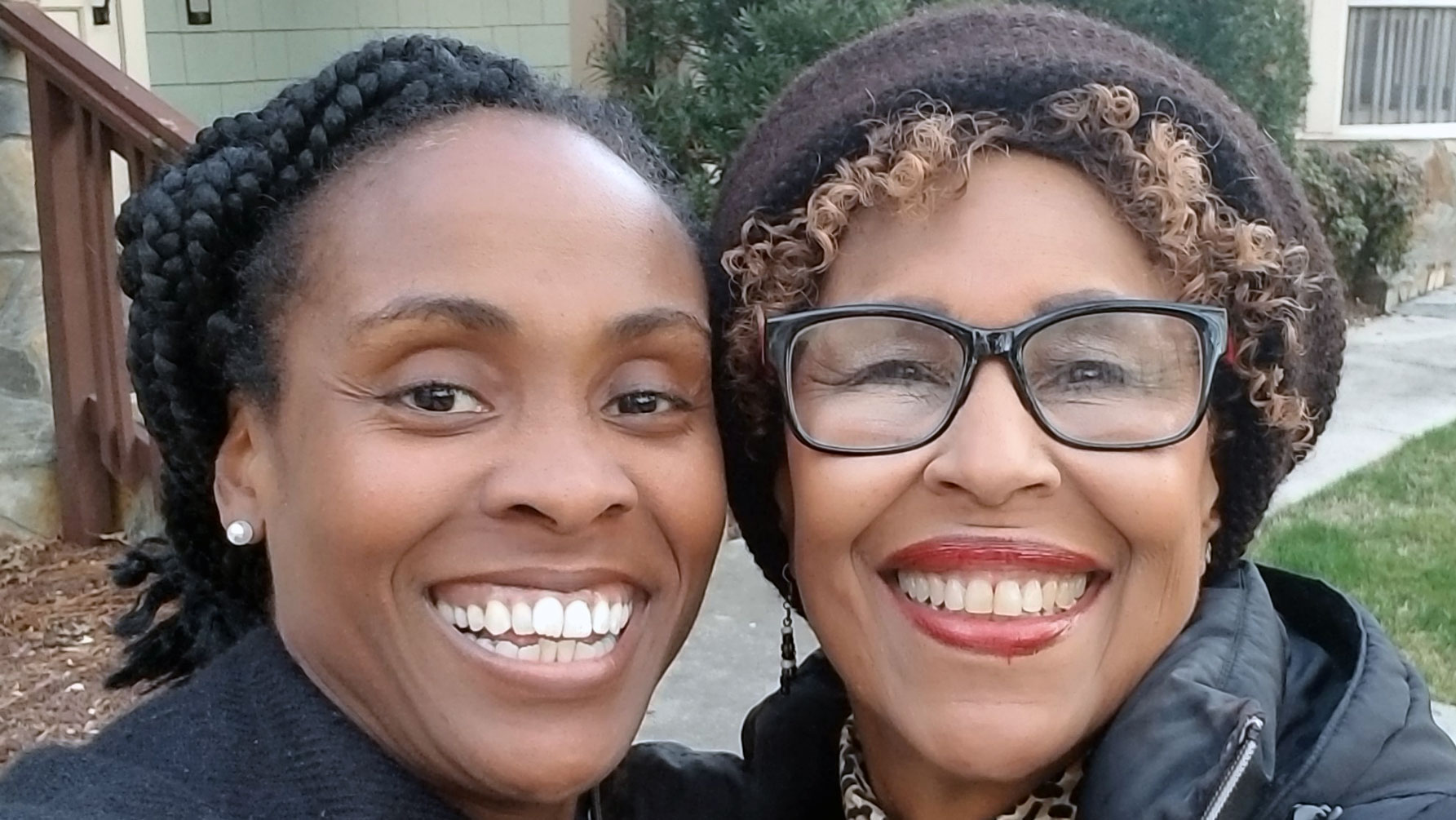High Degree of Influence

Growing up in Baltimore, Maryland, in the early 1950s, Nannette Smith knew to expect one question from her mother.
“She would turn to us at any time during the day, anywhere — in a store, in the kitchen eating — and say, ‘What can’t you do?’ And we were supposed to say, ‘Nothing.’ That was a ritual.”
Smith held on to that answer as she became a civil rights activist, a college student, a scientist, a professor, a parent and a community and university leader. Her daughters, Kara and Kristi, learned it, and now her grandsons are, too.
History in the Making
Most of Smith’s education took place at an integrated school, populated by default with Jewish and African American children due to the migration of white Christian families. But her first school in Baltimore was segregated.
“We sat two to a chair/desk,” she says. “We had books that had belonged to white students previously, and their names were in the books. We got them as hand-me-downs, and we could not take them home because they were so precious.”
In 1954, the U.S. Supreme Court ruled in Brown v. Board of Education that segregated schools were inherently unequal. Smith, age 8, boarded a school bus to an integrated school with a sister who was two years younger.
“I’m very much a child of the civil rights movement. I am an activist.”
“The bus driver was African American, and my mom said to him, ‘Take care of my kids.’ So we got on the bus, and when we got off the bus, there were rows of screaming white parents that didn’t want us there. And we were ushered into the school.”
At age 14, Smith became involved in the civil rights movement, learning peaceful resistance at local Black churches. “We were trained to be able to take verbal abuse without reacting violently,” she says. “We were told to expect being pushed off the sidewalk when we carried picket signs.”
Most of those in training were the children of other Black professionals and business owners, Smith says. “You had to use kids of adults who didn’t have what they called ‘bread in the game,’ meaning they didn’t depend on their daily bread from a white employer,” Smith explains. “And my dad was a physician, which meant he had his own private practice.”
Throughout high school, Smith protested and was arrested and jailed several times. She says she knew she had the support of her parents and community.
“I’m very much a child of the civil rights movement. I am an activist.”
Path to a Ph.D.
For college, Smith chose Howard University, a historically Black university in Washington, D.C. Though students there frequently joined protests, Smith followed her mother’s advice to focus on her education. “She said, ‘You’ve done your part. Don’t go to jail anymore. Just stay and get your education.’”
Drawn to science, Smith earned a bachelor’s degree in microbiology with a minor in botany. An honor student, she worked for a summer at Johns Hopkins University in North Baltimore, returning to Howard for a master’s in botany and genetics.
Her future husband, Lyman Henderson, whom she’d met while he was in dental school at Howard, came back from serving in Vietnam and set up a practice in his home state of North Carolina, in Warrenton. Smith applied to nearby NC State.
She was accepted into the doctoral program in plant pathology. Her experience with electron microscopes and other sophisticated equipment at the federal Plant Industry Station in Beltsville, Maryland, and in research labs at Howard, the University of Maryland and Johns Hopkins, was highly valuable.

Although well-qualified, Smith was not always welcomed.
“I had an unfortunate incident in my orals with one of the faculty members who decided to try to rattle me,” Smith says. After crying in the bathroom, she went to see faculty member Gus Witherspoon. A fellow Baltimorean, he was NC State’s first African American professor and the second African American to earn a Ph.D. from the university.
Witherspoon listened, then asked a question, using her nickname. “He said, ‘OK, ‘Nette, what are you gonna do?’”
“I walked over to the (university) president’s office, asked to see him and told him what had happened and said if it happened again in my next session, I was getting an attorney.”
A representative from the president’s office attended the next session, and the faculty member behaved respectfully.
Smith, known as Smith Henderson after her marriage, became the first Black woman to earn a Ph.D. from NC State. She was unaware of the milestone until the week before her graduation in 1973.
A Heart for Teaching
After working in plant pathology as an assistant professor, she opted to join faculty from other disciplines teaching introductory biology classes at NC State. Even students who weren’t advisees sought her out, particularly minority students.
“I just loved the teaching, and I remember them telling me, ‘We’d like to keep you on as full-time faculty, but you’ve got to do some research.’ I was told, ‘We can find a place to put your lab where students can’t find you.’ That was a turning point right there, that statement. I loved interacting with students.”
She decided to focus on teaching instead, moving to Vance-Granville Community College in Vance County, where she served as director of the college transfer program and later as a biology professor. She enjoyed the smaller class sizes and summers off to spend time with her two daughters, working there until she divorced.
“I wanted to do research, but I also have always been a teacher first,” says Smith, who went on to earn a statewide community college teaching award. “I don’t know that I realized it as much at that time, but it was where I wanted to be, helping young people fulfill their dreams.”
She returned to NC State briefly in a position contingent on grant funding but departed after a struggle over contract renewal while her advocate was away from campus.
She decided to accept a position as faculty member and director of the Division of Natural Sciences with Bennett College in Greensboro, one of only two historically Black colleges for women. While most faculty in leadership positions opt to teach junior- and senior-level courses, Smith loved introductory biology.
“Teaching is what I was meant to do, my mission and my love.”
She got to know students and their families, including some in crisis. She connected with local organizations that supported students in need.
“I had to learn the culture of poverty because most of those students were from underprivileged situations,” she says.
At the start of each class, she locked the room door to prevent latecomers from disrupting class, one of her lessons in life skills such as punctuality. But the most singular feature of Smith’s teaching was that she addressed every one of her students with the title she’d earned at NC State.
“From the first day that I met her, she called me ‘Dr. Fryar.’ I never had a goal of becoming a doctor,” the former Elizabeth Fryar — now Elizabeth Fryar Tita, Ph.D. — says in a Bennett College video.
“She told me to apply for an internship at Howard University. I applied for that internship, and upon completing that internship, I was awarded a five-year fellowship to obtain my Ph.D. in pharmacology.”
Years later, Tita tracked down her mentor to thank her over lunch in Durham. That’s happened to Smith multiple times, even in retirement.
“Students find me,” Smith says. “Teaching is what I was meant to do, my mission and my love.”
This post was originally published in College of Agriculture and Life Sciences News.
- Categories:


